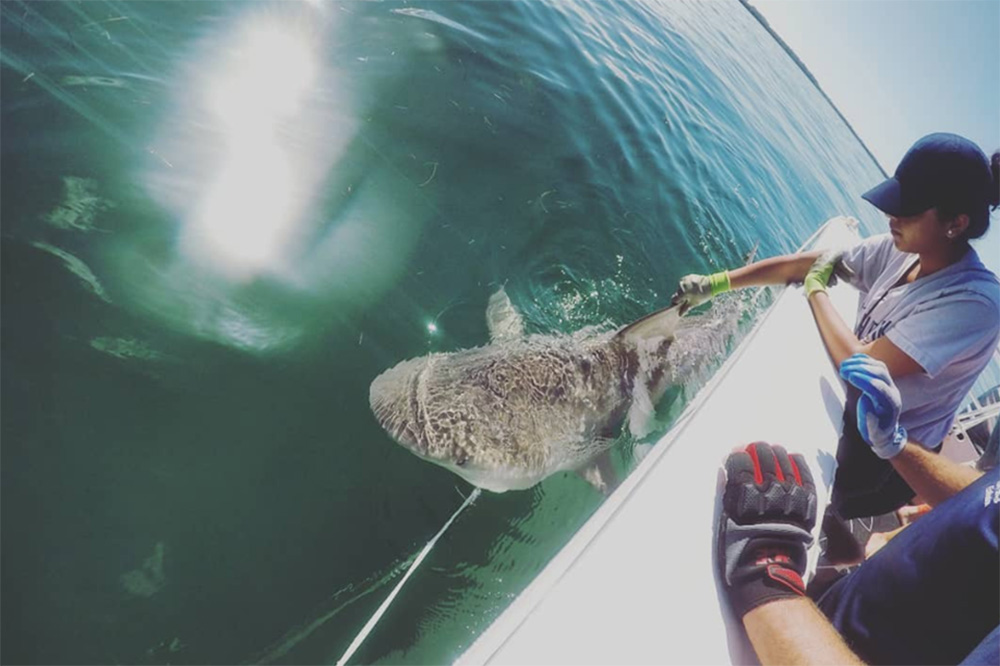A half-blind shark that's typically thought to live in freezing Arctic waters, scavenge on polar bear carcasses and survive for hundreds of years, recently turned up in an unexpected place — a coral reef off Belize. Devanshi Kasana, an FIU Ph.D. candidate in the Predator Ecology and Conservation lab, was working with local Belizean fisherman to tag tiger sharks when the discovery was made. On the other end of one of their lines was a sluggish creature. After conferring with several Greenland shark experts, the final determination was it was definitely in the sleeper shark family — and because of its large size most likely a Greenland shark or a hybrid between the Greenland shark and Pacific sleeper shark.
Media
1,024
Mentions
+1.9 Billion
Audience
In the News
A mysterious Greenland shark showed up in Belize, thousands of miles from its arctic home
July 31, 2022, By Zoe Sottile, CNN
Mysterious deep-sea Arctic shark found in the Caribbean
August 2, 2022, By Annie Roth, National Geographic
Shark native to the Arctic found thousands of miles south in the Caribbean
August 2, 2022, By Julia Jacobo, ABC News
An Arctic shark found in Belize has researchers pondering deep sea discoveries
August 2, 2022, Host Ari Shapiro, NPR All Things Considered
A Greenland shark, one of the longest-living animals on Earth, was caught near Belize
July 31, 2022, By Dustin Jones, NPR
Scientists discover ancient shark swimming in a really strange place
July 30, 2022, By Mark Kaufman, Mashable
Experts

Devanshi Kasana, Ph.D. candidate
Kasana is originally from India where she conducted elasmobranch fishery and trade studies with the Oceans and Coasts Programme at World Wide Fund for Nature- India. At FIU, she is researching the role of shark meat as a driver of the shark fishery in Belize, Central America. Her interests lie in studying heavy metal accumulation and toxicity in shark tissues to inform consumption practices and the trade dynamics of shark meat.

Demian Chapman, Ph.D.
Chapman is an adjunct professor in the Department of Biological Sciences at FIU and the director of the Sharks and Rays Conservation Program at Mote Marine Laboratory. A molecular ecologist by training, he led the Global FinPrint project and studies the global trade in shark fins and meat.